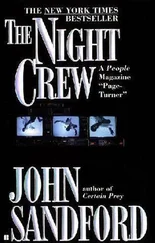The Nixon ’s nose was pointed directly sunward, so that the VASIMRs’ thrust could push its orbit into a tighter and tighter ellipse, a trajectory that would skim the sun at a scorching thirty million kilometers.
That was well within the orbit of Mercury, and the sun’s light would be twenty-five times as intense as it was on Earth. The small risk was worth it: the sun’s gravity was equally fierce; they’d be whipping past the sun at better than a hundred kilometers per second but the gravity would still bend the spaceship’s heading by forty degrees, putting the Nixon on track for a Saturn rendezvous. That was Howardson’s “solar slingshot” trajectory, the one that would let them beat the Chinese to Saturn.
Martinez and the other handymen began prelim work on rigging the solar parasols to protect the ship. The parasols didn’t need to be anything fancy: they weren’t going to be there that long, and once the Nixon was past the sun, they’d be jettisoned. They would be large—hundreds of meters on a side, but that was nothing compared to building the Nixon in the first place. Deployment wasn’t imminent, as perihelion was a month away. Still, it was something to do.
As the Nixon left Earth’s orbit, the crew began self-consciously to develop daily routines.
There was a constant stream of information coming in from Earth, so the Internet and all the related research facilities were there for the academics; and the maintenance people always had work to do.
For most of them, the Nixon ’s voyage was their first experience living in a low-gravity environment. One-tenth gee wasn’t much in the way of artificial gravity, not enough to prevent loss of bone density, some atypical edema, and other signs of space deterioration.
Too many of the residents were out of shape, and for the first time in their lives, had to maintain a strict regimen of daily physical exercise. If they didn’t, returning to Earth would be a nightmare, with elevated risks of broken bones or heart attacks.
Sandy found himself in demand as a physical trainer, and led two classes a day in core exercises, and spent an hour working out himself under the eye of Marine Captain George Barnes, a physical fitness nut. Sandy enjoyed the workouts, but never, in all his gym experience, had he heard so much bitching and moaning. Fang-Castro ordered monitoring of all physical activity, logging both cardiovascular exercise and resistance training for every crew member.
John Clover taught a weight class, with steel weights fabricated by Martinez from bits and pieces of space junk left behind at the Nixon ’s former niche in Earth orbit. Clover had been out of shape for years, and now found himself slimming down and adding muscle at the same time.
Roger Ang, the violinist/psychiatrist who’d been worried about the tone of his rare instrument, turned out to have been a college wrestler, and taught a popular wrestling class, which combined both cardio and resistance. The first time they wrestled, he pinned Crow four times in less than two minutes, despite the low gravity, which made it more difficult to keep an opponent pinned to the floor.
As they headed for the showers, Sandy said to Crow, “He kicked your ass. A pencil-necked shrink. A fuckin’ violinist. A snowflake. A delicate little flower…”
“In sports, the rules define outcomes,” Crow said. “He won because I wasn’t allowed to bite his nose off, knee him in the balls, or gouge his eyes out.”
“There’s gotta be some rules,” Sandy said.
“Really? I hadn’t heard that.”
____
Seven bands, an orchestra, three string quartets, and two choirs popped up within days. Sandy and Martinez put together a Country/RhythmTech trio, with Imani Stuyvesant, an exobiologist who played drums. Fiorella, as it turned out, having grown up in Bakersfield, California, was an expert two-stepper. She began giving dance lessons. Crow hadn’t brought an instrument along, but admitted to Sandy that he’d once played an upright bass in high school and in the Naval Academy orchestra.
“If you played an upright bass, you could play an electric—it’s all just ears,” Sandy told him. “I’ll start fabricating an electric one in the shop. We need a bass player.”
Crow didn’t say “no.”
Because of the low gravity, activities took on a bit of a slow-motion quality, like living in a special-effects movie. The new crew members learned to act more deliberately, because an unthinking gesture or swipe of the hand could much more easily send objects flying across the room. Tossing a salad without scattering greens all over the table was a delicate art. Get careless reaching for a coffee cup and you’d knock it off your desk. It would take three times longer to hit the floor, but you’d still have to clean up the mess.
Consequently, most crew members found living in one-tenth gee a little surreal. Still, it was more familiar and comfortable for most of them than living in zero-gee, which they would pass through when moving from one habitat module to the other. A few liked it better than Earth gravity
Like Mr. Snuffles. His favorite space was the cafeteria/commons, where there was always an ailurophile or two or three to slip him treats—bits of tofu salmon, tofu beef, tofu chicken, engineered to the point where not even a cat’s taste buds could tell the difference.
Becca sat at her desk, pondering an uncompleted e-mail to home, one eye on the clock. Because of the security team’s paranoia, she couldn’t write much about the things she was most directly working with: the reactors.
Outgoing mail was computer-scanned for sensitive content, and if any were found, the computers triggered a look by humans. So, no shoptalk about the mission. She could mention that they were twelve days into their flight and sixteen million kilometers from Earth, accelerating toward the sun, but that was about it. Nor did she feel inclined to get very personal, with who knows who reading over her shoulder.
That left shipboard routine, which was both sensible and irritating.
Like the mandatory lights-out. The ship’s computer, under the direction of the ship’s doctor, would be killing the lights in her room in half an hour, at 23:00. Sleepy-bye time—it made her feel like she was nine years old again, on a school night.
In this case, though, the logic was unassailable. She had ultimate responsibility for the ship’s power systems, and the docs had decided that her usual workaholic running-herself-ragged style was not conducive to the ship’s safety. Fatigue could lead to errors in judgment; errors in judgment in space lead to death.
Consequently, she was required to spend eight hours in bed every night. She wasn’t required to sleep. She could twiddle her thumbs, calculate cube roots in her head, or chant her mantra, as long as she was in bed with the lights out.
So, she slept. And, she had to admit, her working day seemed to go more smoothly and her attitude toward the world was brighter. She still resented the parental authority. Her mother and father found the irony to be vastly amusing.
She’d just finished the letter when something bumped the leg of her chair; she felt it in her still-plump butt, though the mandatory gym time seemed to be making it a bit less plump.
Uh… bump?
There was nothing in the room to bump the chair—it had come up through the floor. Which meant the whole ship had bumped. It was a pretty unimpressive bump; if she hadn’t been sitting stock-still and relaxed at her desk, she wouldn’t have even felt it. But there weren’t supposed to be any bumps at all. The compensating actuators that coupled the propulsion modules to the rest of the ship ought to catch all of those.
Читать дальше








